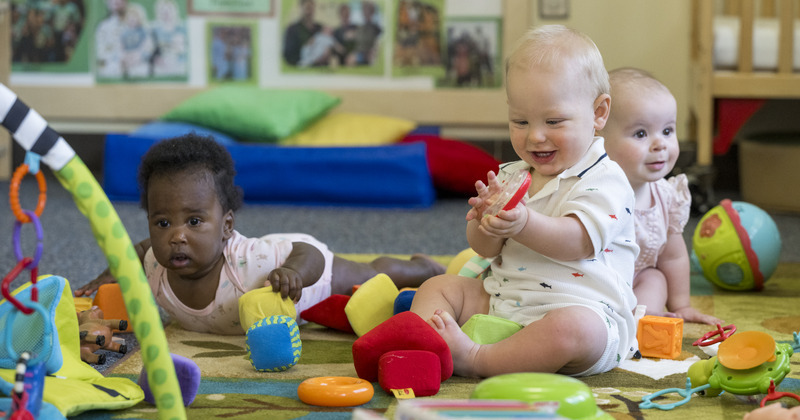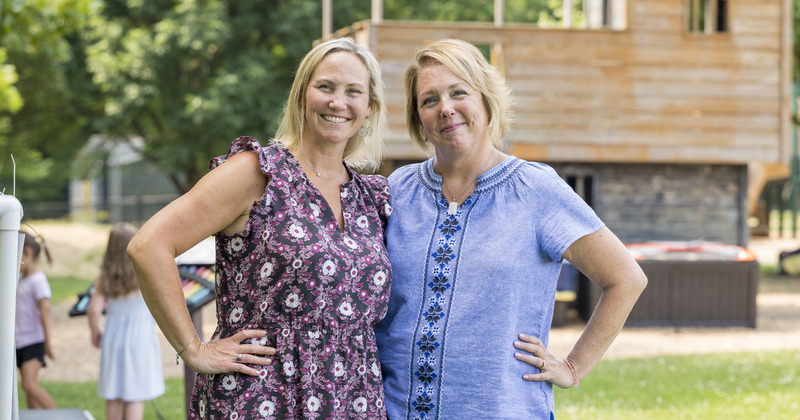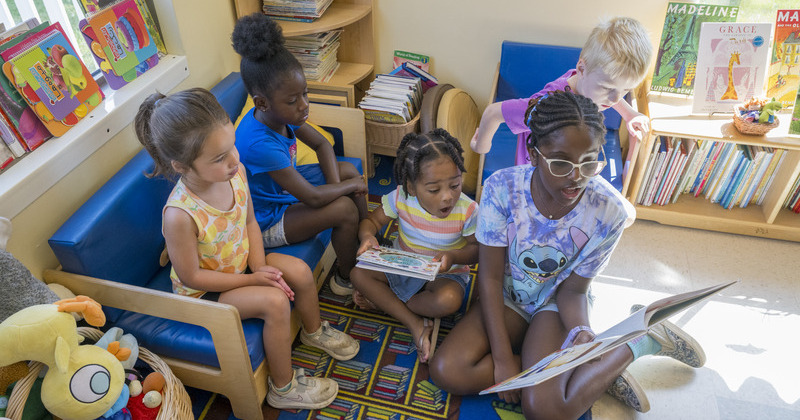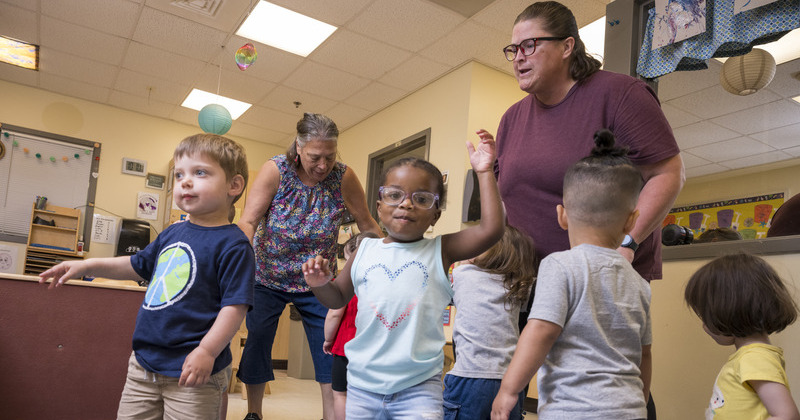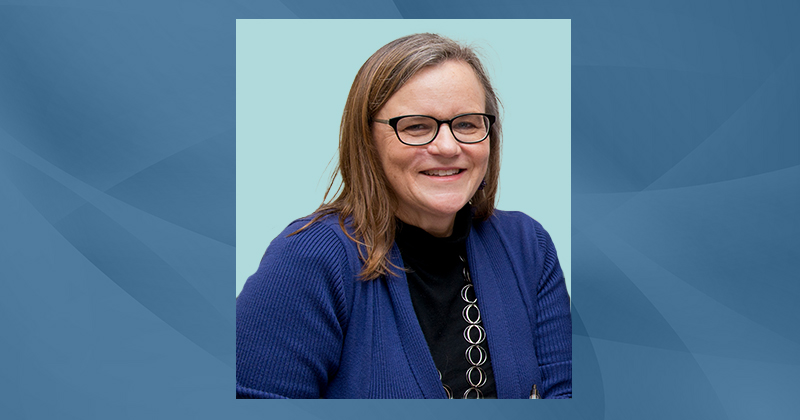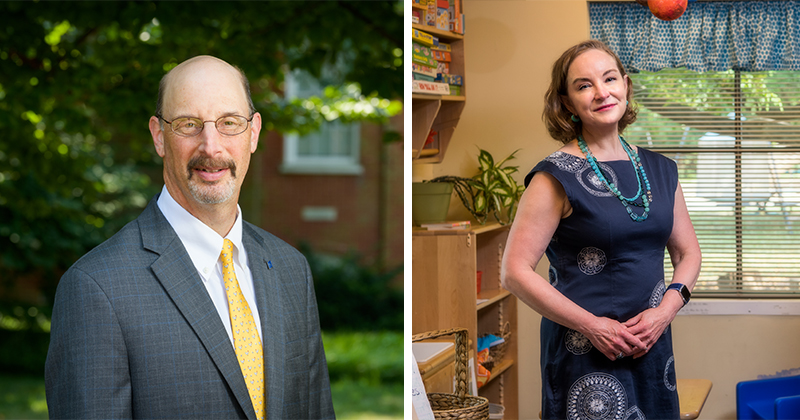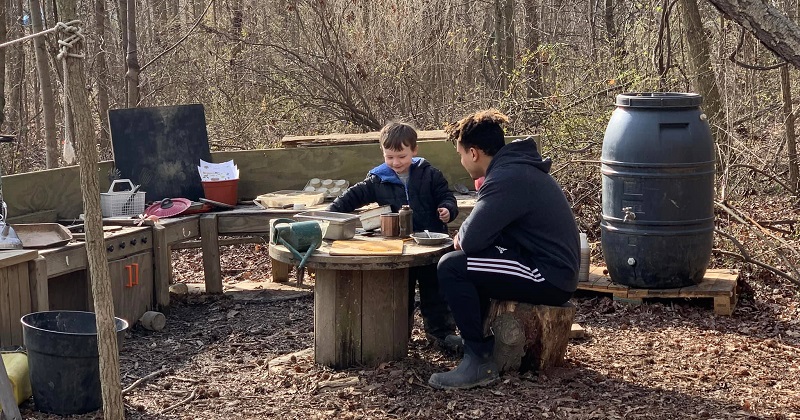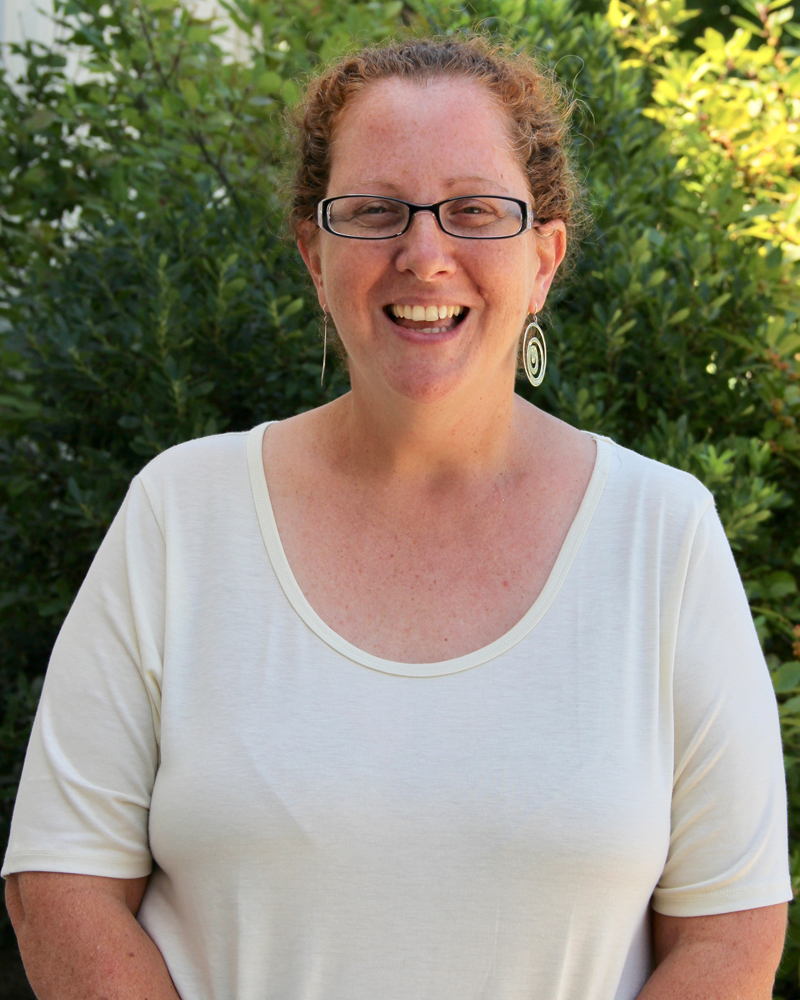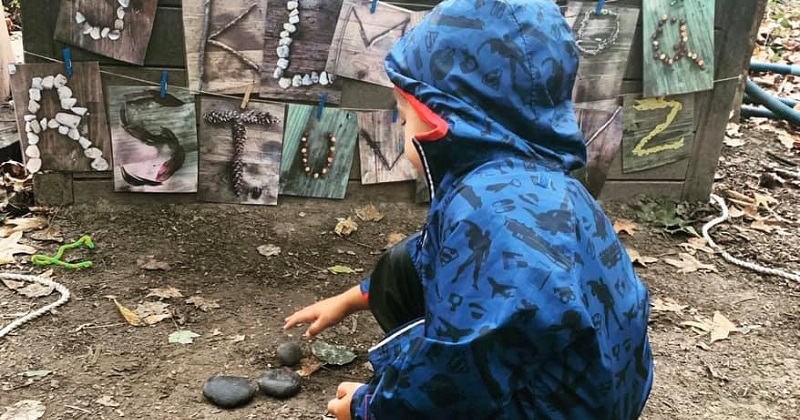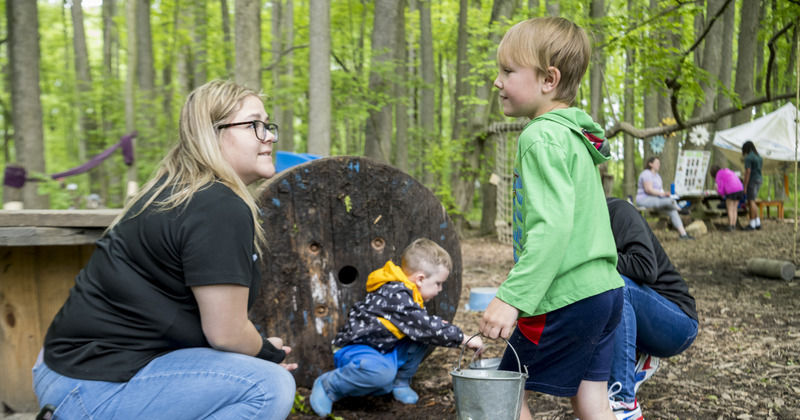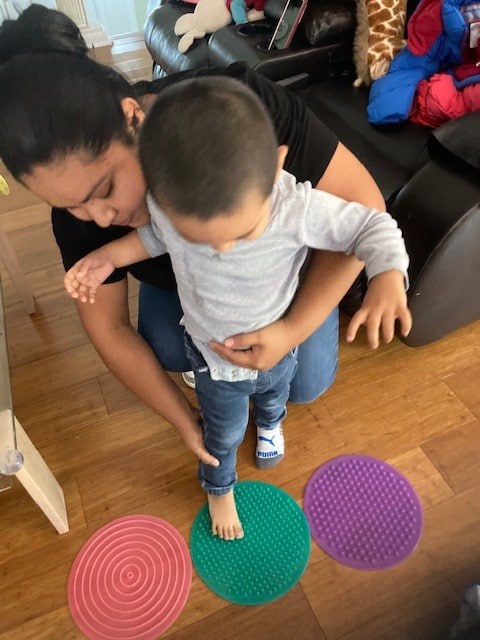Buell, Chajes named to roles in faculty affairs and undergraduate education
Two longtime members of the University of Delaware faculty will assume new positions within the Office of the Provost, President Dennis Assanis and Provost Laura Carlson announced today.
Martha Buell, chair of the Department of Human Development and Family Sciences, will serve as vice provost of faculty affairs, effective Aug. 15. She will replace Matt Kinservik, who will complete his term in that role this year and is returning to his faculty role within the Department of English.
Also, Michael Chajes, professor of civil engineering, has been named interim vice provost of undergraduate education, effective July 1. He replaces Avron Abraham, who is retiring from the University. Chajes has also been named to another term as dean of the UD Honors College.
“Martha and Michael are outstanding scholars and respected leaders within the UD community, and they have both demonstrated a strong commitment to supporting and advancing the entire University,” Assanis said. “Our faculty and our undergraduate students are central to what we do at UD, so I am excited to be working with Martha and Michael to strengthen and expand our efforts to serve these core constituencies.”
Buell and Chajes will report to Carlson in their new roles.
“Martha and Michael each bring extensive knowledge and experience to their new roles, as well as a commitment to growing and advancing our efforts in support of our faculty and undergraduate students,” Carlson said. “They are best positioned to extend the work of their predecessors. I wish Matt and Avron all the best in their new endeavors.”
Buell, a former president of the Faculty Senate, said she is eager to use her experience in shared governance as vice provost for faculty affairs.
“The faculty are the foundation of UD’s excellence in teaching and research, so I am looking forward to working with my colleagues to continue attracting, retaining and promoting our excellent faculty at all levels,” Buell said. “I appreciate that President Assanis and Provost Carlson have offered me this opportunity to serve UD in this new role.”
Chajes said working in undergraduate education has always been a meaningful and satisfying part of his academic career.
“I enjoy seeing and being part of students’ incredible transition from incoming freshmen all the way through graduation, so this is an opportunity to have an even greater impact on their education and preparation for lifelong success,” Chajes said. “I am also grateful that President Assanis and Provost Carlson have given me another term to serve the amazing students in the Honors College.”
About Martha Buell
Buell earned her bachelor’s degree in anthropology from Vanderbilt University, her master’s in education from Tulane University and her doctorate in human development and family studies from the University of North Carolina at Greensboro.
Buell joined UD in 1996, serving as the founding director of U.D.’s federal Early Head Start program from 1997 to 2002. From 2009 to 2020, she directed the Delaware Institute for Excellence in Early Childhood. Her scholarship focuses on factors influencing quality in early care and education programs. Her current research focuses on policy alignment and implementation related to suspension, expulsion and exclusionary discipline in state subsidized child care and preschool programs. Buell also has a joint appointment in the Joseph R. Biden, Jr., School of Public Policy and Administration.
She served as president of the Faculty Senate in 2017-18, and she has served on multiple committees for the University, the Faculty Senate and the UD chapter of the American Association of University Professors.
About Michael Chajes
Chajes earned his bachelor’s degree in civil engineering at the University of Massachusetts at Amherst and graduated with honors. He received his master’s and doctoral degrees in civil engineering from the University of California at Davis.
Joining the UD faculty in 1990, Chajes has served as chair of the Department of Civil and Environmental Engineering and dean of the College of Engineering. He has taught classes and conducted research in the areas of structural engineering, structural health monitoring of bridges and applications of sustainability.
In 2019, Chajes was named director of the Honors Program, which was elevated to become the Honors College in 2020, with Chajes as the inaugural dean.
Article by Mike Chalmers. Photos by Evan Krape and Kathy F. Atkinson July 15, 2024
Read this article in UDaily
Header image caption: Two longtime members of the University of Delaware faculty will assume new positions within the Office of the Provost. Michael Chajes, a professor of civil engineering, has been named interim vice provost of undergraduate education, effective July 1. Martha Buell, chair of the Department of Human Development and Family Sciences, will serve as vice provost of faculty affairs, effective Aug. 15.

